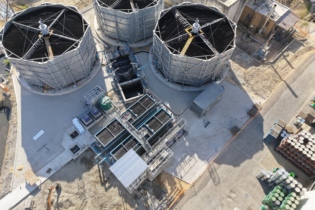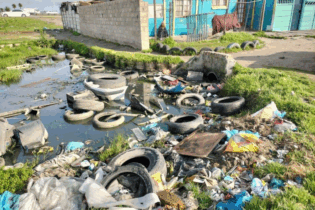A study of almost 200 major international water-related projects over the past 20 years has identified a suite of existing and emerging challenges and how science can offer remedies.
The Global Environment Facility (GEF), the largest public funder of projects to improve the global environment and promote sustainable development, partnered with the United Nations University and the United Nations Environment Programme (UNEP) to extract lessons from a portfolio of major transboundary water projects involving investments of more than US$7 billion. Insufficient and disjointed management of human demands on water and aquatic systems has led to situations where both social and ecological systems are in jeopardy and have even collapsed, says the report. River basins in particular are set to experience growing pressures due to urbanisation, rising water scarcity and poor water quality. Investing in science, in order to identify emerging issues and track trends relating to the use of water resources, can help to reduce such risks, according to the study. Links between science and policymaking also need to be strengthened. Several success stories of research investments that paid rich dividends are also highlighted in the report. These include efforts to rid Lake Victoria of alien water hyacinths, where an unsuccessful project using harvesting and chopping machines was replaced with biological control of the hyacinths using a weevil. The GEF-backed approach yielded immediate positive results for biodiversity and local communities.The new report, Science-Policy Bridges over Troubled Waters, synthesizes findings of over 90 scientists worldwide assigned to five GEF International Water Science (IW:Science) working groups focusing on groundwater, lakes, rivers, land-based pollution sources, and large marine ecosystems and the open ocean.
According to the report: “The consequences of poor decision-making are dire: we face a ‘water bankruptcy’ in many regions of the world with implications for food and energy security, adaptation to climate variability and change, economic growth and human security challenges.” The report was launched on the opening day of the GEF International Waters Science Conference held in Bangkok, Thailand. The conference aims to set priorities for international waters science over the next decade and to enhance the use of science in GEF projects and beyond.
Other key findings include:
• Levels of dissolved oxygen levels in marine areas (a critical ecological indicator) have dropped significantly over a relatively short time. In 2008, over 400 marine dead zones were known to span a total area of more than 245,000 square kilometers.
• The report also highlights a major increase of stored heat in oceans. Such changes could have negative impacts on ecosystems, sea levels and human livelihoods.
• The management of groundwater remains isolated from other ecosystems, and the limitations in recharge capacity of aquifers are not well understood by decision makers.





